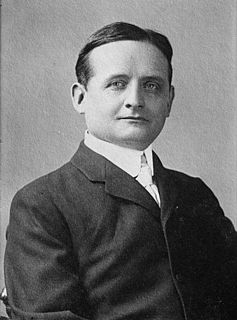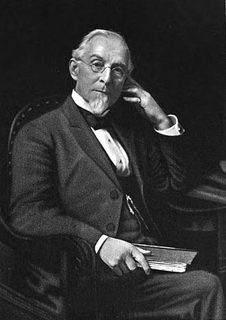
John E. Powers was an American politician who served as President of the Massachusetts Senate from 1959 to 1964.

The 1960 Massachusetts gubernatorial election was held on November 8, 1960. John A. Volpe was elected Governor of Massachusetts to replace Foster Furcolo. Volpe defeated Democrat Joseph D. Ward in the race. Also running were Henning A. Blomen of the Socialist Labor Party of America and Guy S. Williams of the Prohibition Party.

The Boston mayoral election of 1987 occurred on Tuesday, November 3, 1987, between Mayor Raymond Flynn and City Council member Joseph M. Tierney. Flynn was re-elected to his second term.

The Boston mayoral election of 1979 occurred on Tuesday, November 6, 1979, between Mayor Kevin White and state senator Joseph F. Timilty. This was the second election in a row between White and Timilty. White once again defeated Timilty and was elected to a fourth term.

The Boston mayoral election of 1975 occurred on Tuesday, November 4, 1975, between Mayor Kevin White and state senator Joseph F. Timilty. White was elected to a third term.

The Boston mayoral election of 1971 occurred on Tuesday, November 2, 1971, between Mayor Kevin White and United States Representative Louise Day Hicks. This was the second election in a row between White and Hicks. White once again defeated Hicks and was elected to a second term.

The Boston mayoral election of 1967 occurred on Tuesday, November 7, 1967, between Secretary of the Commonwealth Kevin White and Boston School Committee member Louise Day Hicks. White was elected to his first term, and inaugurated on Monday, January 1, 1968.

The Boston mayoral election of 1959 occurred on Tuesday, November 3, 1959, between former Boston City Council member John F. Collins and President of the Massachusetts Senate John E. Powers. Collins was elected to his first term, and was inaugurated on Monday, January 4, 1960.

The Boston mayoral election of 1955 occurred on Tuesday, November 8, 1955, between Mayor John B. Hynes and State Senator John E. Powers. Hynes was elected to his third term.

The Boston mayoral election of 1951 occurred on Tuesday, November 6, 1951, between Mayor of Boston John B. Hynes and former Mayor James Michael Curley. Hynes was elected to his second term.
John L. Saltonstall Jr. was an attorney and politician who served as a member of the Boston City Council from 1968 to 1972.

The Boston mayoral election of 1949 occurred on Tuesday, November 8, 1949, between incumbent Mayor of Boston James Michael Curley, city clerk and former acting mayor John B. Hynes, and three other candidates. Hynes was elected to his first term.

The Boston mayoral election of 1945 occurred on Tuesday, November 6, 1945. Former Mayor of Boston James Michael Curley defeated acting mayor John E. Kerrigan and four other candidates.

The Boston mayoral election of 1925 occurred on Tuesday, November 3, 1925. Malcolm Nichols, a former member of the Massachusetts House of Representatives and Massachusetts Senate, defeated nine other candidates to be elected mayor.

The Boston mayoral election of 1914 occurred on Tuesday, January 13, 1914. James Michael Curley, member of the United States House of Representatives, was elected Mayor of Boston for the first time, defeating Thomas J. Kenny, president of the Boston City Council.

The Boston mayoral election of 1907 occurred on Tuesday, December 10, 1907. Republican candidate George A. Hibbard defeated Democratic candidate John F. Fitzgerald, the incumbent Mayor of Boston, and John A. Coulthurst, an Independence League candidate. Primary elections for each party had been held on Thursday, November 14, 1907.

The Boston mayoral election of 1901 occurred on Tuesday, December 10, 1901. Democratic candidate Patrick Collins defeated Republican candidate and incumbent Mayor of Boston Thomas N. Hart, and two other contenders.

















